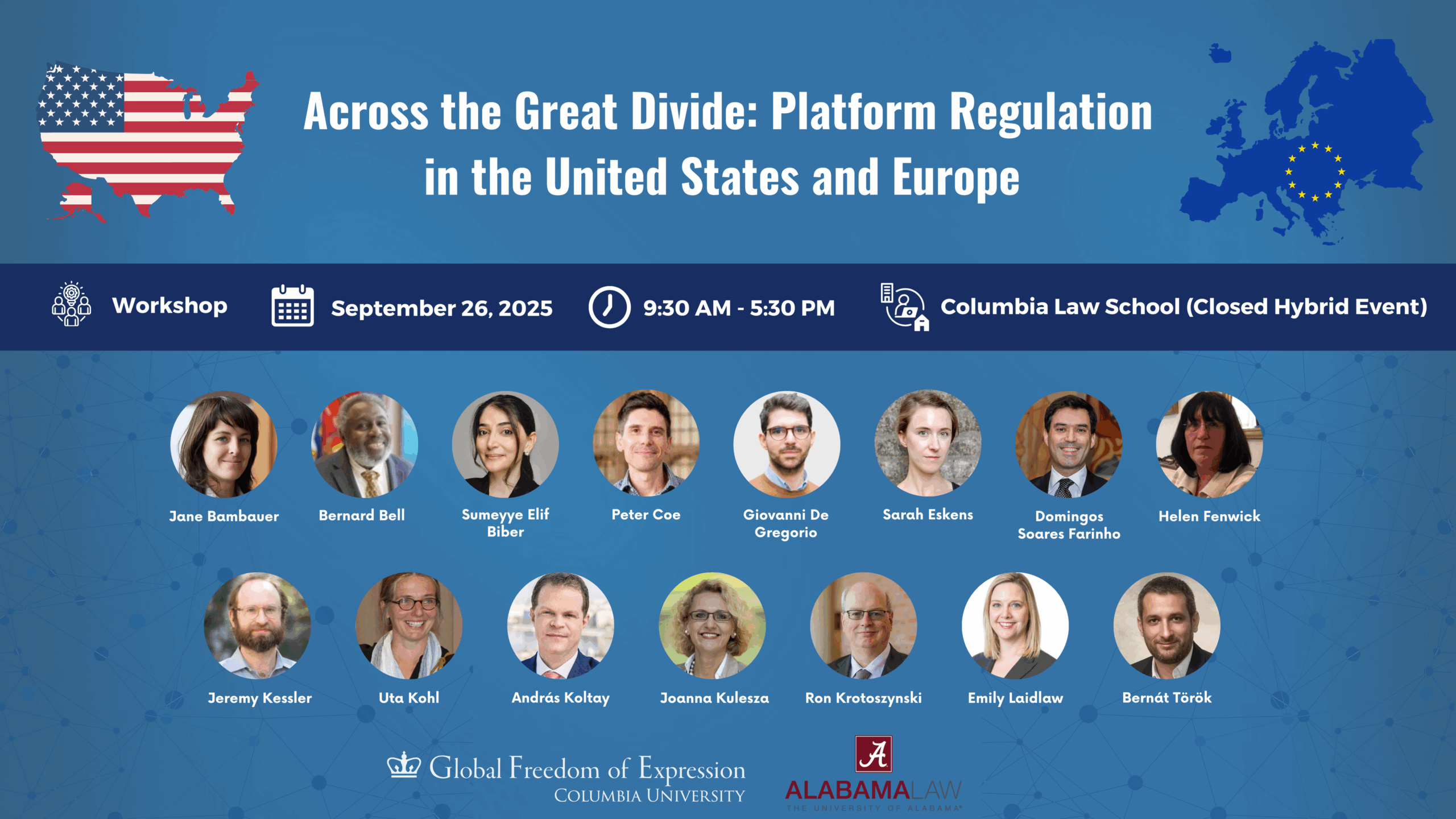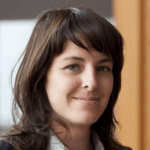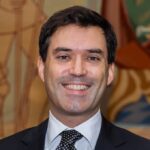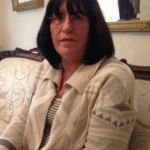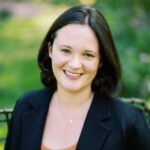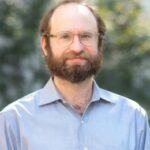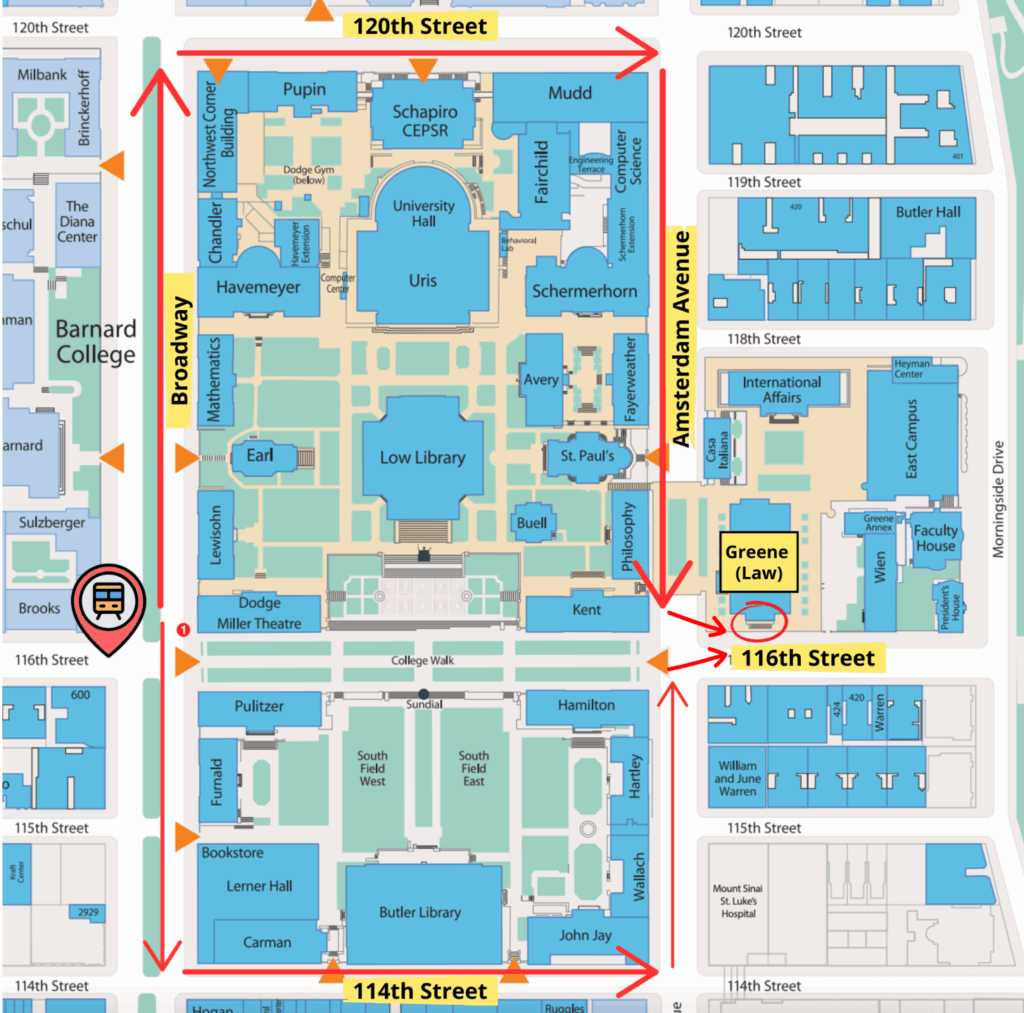26 September
Across the Great Divide: Platform Regulation in the United States and Europe – Book Workshop
Overview
Co-organized by Columbia Global Freedom of Expression and Columbia Law School, in partnership with Professor Ronald J. Krotoszynski from Alabama Law, this workshop will focus on the forthcoming volume Across the Great Divide: Platform Regulation in the United States and Europe.
The event will bring together contributing authors in person at Columbia Law School, with additional scholars joining remotely, to present and refine their chapters for this high-profile publication.
About the Book
Over the past decade, internet platforms have become central to the flow of information, public discourse, services, and even official transactions. Their growing influence has generated urgent and complex legal and regulatory challenges.
Across the Great Divide explores how the United States and Europe —two jurisdictions with outsized influence on global platform regulation— approach these issues.
-
In the U.S., debates are shaped by the First Amendment and doctrines such as Section 230 CDA.
-
In the E.U., the Digital Services Act and a unified regulatory approach are setting new global standards.
The book offers a comparative legal analysis of these divergent models, examining:
-
Social media, video-sharing platforms, and search engines.
-
Platform liability and content moderation systems.
-
The impact of algorithmic regulation on freedom of expression and democracy.
-
Constitutional and policy responses to the power of platforms.
By contrasting American skepticism of regulation with European trust in regulatory frameworks, the book provides insights into how both traditions grapple with balancing free expression, democratic participation, and effective governance.
Why It Matters
As regulators worldwide look to the U.S. and Europe for models, understanding their approaches is key to building effective, rights-respecting frameworks for the digital age.
This workshop will not only refine the book’s chapters but also foster dialogue among leading scholars, aiming to shape future debates on one of the most pressing legal and policy issues of our time: the regulation of online platforms across different jurisdictions.
Agenda
Friday, September 26
|
9:30 AM |
Convene – Columbia University Law School |
|
10:00 – 11:30 AM |
Panel One – EU Law and Disinformation
Moderator: Ronald J. Krotoszynski Speakers (all remote):
|
|
11:45 – 1:15 PM |
Panel Two – EU Law
Moderator: Emily Laidlaw Speakers (all remote):
|
|
1:15 – 2:00 PM |
Lunch |
|
2:00 – 3:30 PM |
Panel Three – U.S./Canadian Law
Moderator: Ronald J. Krotoszynski Speakers:
|
|
3:45 – 5:30 PM |
Panel Four – U.S. Law
Moderator: Emily Laidlaw Speakers:
|
Please note this is a closed event for contributing authors only.

Ronald Krotoszynski
John S. Stone Chairholder
University of Alabama School of Law
Jeremy Kessler
Stanley H. Fuld Professor of Law
Columbia Law School
Hawley Johnson
Associate Director
Global Freedom of Expression, Columbia University
Jane Bambauer, Brechner Eminent Scholar and Professor of Law, The University of Florida
Professor Jane Bambauer is the Brechner Eminent Scholar at the Levin College of Law and at the College of Journalism and Communications. She teaches Torts, First Amendment, Media Law, Criminal Procedure, and Privacy Law.
Professor Bambauer’s research assesses the social costs and benefits of Big Data, AI, and predictive algorithms. Her work analyzes how the regulation of these new information technologies will affect free speech, privacy, law enforcement, health and safety, competitive markets, and government accountability. Professor Bambauer’s research has been featured in over 20 scholarly publications, including the Stanford Law Review, the Michigan Law Review, the California Law Review, and the Journal of Empirical Legal Studies. Her work has also been featured in media outlets, including the Washington Post, the New York Times, Fox News, and Lawfare, where she is a contributing editor.
Professor Bambauer currently serves as the Chair of the National AI Advisory Committee Subcommittee on Law Enforcement, and she has previously served as the deputy director of the Center for Quantum Networks, a multi-institutional engineering research center funded by the National Science Foundation. She holds a B.S. in Mathematics from Yale College and a J.D. from Yale Law School.
 Bernard W. Bell, Professor of Law, and Herbert Hannoch Scholar, Rutgers Law School
Bernard W. Bell, Professor of Law, and Herbert Hannoch Scholar, Rutgers Law School
Bernard W. Bell is a constitutional law expert who specializes in property and privacy law. He clerked for U.S. Supreme Court Justice Byron R. White, practiced with Sullivan and Cromwell in New York and served as senior litigation counsel and as Assistant U.S. Attorney in the U.S. Attorney’s Office for the Southern District of New York.
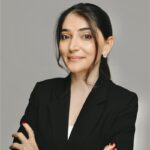 Sümeyye Elif Biber, Legal Scholar in European Public Law and Digitalization, AI Law and Fundamental Rights, Head of Digital Rights at The Digital Constitutionalist, University of Luxembourg, Department
Sümeyye Elif Biber, Legal Scholar in European Public Law and Digitalization, AI Law and Fundamental Rights, Head of Digital Rights at The Digital Constitutionalist, University of Luxembourg, Department
of Law
Dr. Sümeyye Elif Biber is a legal scholar in European public law and digitalisation at the University of Luxembourg Faculty of Law. She holds a PhD degree (cum laude, highest distinction) from Sant’Anna School of Advanced Studies in Pisa, with her dissertation, “A Rights-Based Inter-Legal Approach to the Fundamental and Human Rights Challenges posed by Artificial Intelligence Systems”, supervised by Prof. Gianluigi Palombella. Currently, she is writing a book, “A Rights-Based Inter-Legal Approach to Artificial Intelligence”, which is under contract with Hart Publishing.
Prior to joining the University of Luxembourg, she participated in several programs to develop her research at the European University Institute in Florence and Harvard Law School. In her academic career, she is recognised as one of the prominent early scholars all around the globe (by the International Forum on the Future of Constitutionalism) and is the best-ranked candidate in the competitive selection for admission to the PhD programme in 2018 (83/100) (winner of a three-year research scholarship funded by the Italian Ministry of University and Research). She obtained her LLB from Istanbul University Law School with “high honour” and received her LLM degree with distinction from Koc University with her LLM thesis, “Concretisation of Constitutional Norms Referring to the Protection of Private Life in the Individual Application Case-Law”. Her published work and presentations so far have focused on, (i) the interpretation of fundamental and human rights in the context of new technologies by the ECtHR, CJEU, and the BVerfG: (ii) the complex and composite character of law interlocking state, regional, international, and global legality through the theory of inter-legality; (iii) transnational approaches to AI and the regulatory dialogue between the US and the EU; (iv) privatisation of the enforcement of fundamental rights in the algorithmic society; and (v) “online states” with a focus on the regulation of social platforms.
She presented her papers at well-respected international conferences organised by ICON-S, Tilburg University (“Regulating in Times of Crises”), International Forum on the Future of Constitutionalism, Computers, Privacy and Data Protection (CPDP-Brussels), EUI (Florence), and the United Nations International Federation for Information Processing (Switzerland).
In addition to her lectures on “AI Law and Fundamental Rights” at the Sant’Anna School of Advanced Studies in Pisa and the University of Luxembourg, she has also taught the main course in “Comparative Administrative Law” at the Bachelor’s program in the Law Faculty of the University of Luxembourg. Her teaching experience spans both emerging areas of law, such as AI and fundamental rights, and core legal disciplines, reflecting her comprehensive expertise and influence in shaping the academic landscape of these fields.
Since 2023 February, she is the Head of Digital Rights of the Digital Constitutionalist in Florence (EUI).
 Peter Coe, Associate Professor in Law, Birmingham Law School, University of Birmingham, UK
Peter Coe, Associate Professor in Law, Birmingham Law School, University of Birmingham, UK
Dr Peter Coe’s primary research interests are: (i) the changing nature of journalism, and how this impacts on free speech, press freedom and regulation, and the concepts of privacy and reputation; (ii) defamation, including the protection of corporate reputation; and (iii) media power and plurality, the role the media plays within society and its impact on democracy. His work in these areas has been published in leading journals such as Legal Studies, the University of Melbourne’s Media & Arts Law Review, the Journal of Media Law, the Journal of Business Law and Northern Ireland Legal Quarterly, amongst others, and his monograph, Media Freedom in the Age of Citizen Journalism, was published by Edward Elgar Publishing in 2021. He is the co-editor, with Professor Paul Wragg, of Landmark Cases in Privacy Law, which was published by Hart in 2023.
Dr Coe’s research has led to several external appointments. For example, in 2024 he was a Distinguished Research Fellow at the Institute of Advanced Study at Durham University. In 2022 he was appointed by the Council of Europe as an independent member of the Council’s Expert Committee on Strategic Lawsuits Against Public Participation (SLAPPs). He was subsequently called to give expert evidence to the UK Government Justice Select Committee on SLAPPs and has advised and worked with the Ministry of Justice, charities, NGOs and other organisations on various reform proposals relating to this type of litigation. In the same year, he was appointed as a Senior Visiting Research Fellow at the School of Law, University of Reading, and in 2021 he was invited to join the Institute of Advanced Legal Studies and Information Law and Policy Centre as an Associate Research Fellow, having been a Research Associate at the ILPC since 2018. His work on citizen journalism, press freedom and regulation led to him helping to set up, and then lead, an Impress Advisory Group to provide expert guidance to the press regulator on the creation and operation of a new regulatory scheme. He was subsequently asked to join the Impress Code Committee to support its review of its Standards Code for journalists, and between October 2021 and January 2022 he was engaged by Impress to draft its new Standards Code and Guidance. He has also advised the Information Commissioner’s Office on the development of its draft journalism code of practice. During 2021-2022, upon invitation from the International Academy of Comparative Law and British Association of Comparative Law, he acted as the United Kingdom’s National Rapporteur on Freedom of Speech and the Regulation of Fake News.
Since 2019 Dr Coe has been the Editor of Communications Law, one of the leading specialist journals devoted to media and technology law. He also sits on the International Editorial Boards of In Medias Res and the International Journal of Communication and New Technologies Law. From 2017 to 2020 he was a member of the Executive Committee of the Society of Legal Scholars, and from 2020 to 2023 he was Convenor of the Society’s Media and Communications Law subject section.
 Giovanni De Gregorio, PLMJ Chair in Law and Technology at Católica Global School of Law and Católica Lisbon School of Law
Giovanni De Gregorio, PLMJ Chair in Law and Technology at Católica Global School of Law and Católica Lisbon School of Law
Giovanni De Gregorio is the PLMJ Chair in Law and Technology at Católica Global School of Law and Católica Lisbon School of Law. He is also a member of the Católica Research Centre for the Future of Law.
His research interests and teaching activities lie at the intersection of European law and constitutional law with a focus on digital technologies and policy. Giovanni is the author of the monograph Digital Constitutionalism in Europe: Reframing Rights and Powers in the Algorithmic Society (Cambridge University Press, 2022), and he is the corresponding co-editor of The Oxford Handbook on Digitial Constitutionalism (OUP, forthcoming).
His research has been published in leading international journals and edited volumes, including the International Journal of Constitutional Law, Common Market Law Review, German Law Journal, Global Constitutionalism, Computer Law and Security Review, European Journal of Legal Studies, and the International Journal of Communication. He has also co-edited two books: Constitutional Challenges in the Algorithmic Society (Cambridge University Press, 2021), with Hans W. Micklitz and others; and Blockchain and Public Law: Global Challenges in the Era of Decentralisation (Edward Elgar, 2021), with Oreste Pollicino.
Giovanni is also co-founder of The Digital Constitutionalist (Digi-Con), and he serves on the editorial boards of MediaLaws, Diritti Comparati, and the Journal of Law, Market and Innovation. He is also a member of the advisory board of International Data Privacy Law and reviewer for journals and books such as the International Journal of Constitutional Law, Computer Law and Security Review, European Journal of Comparative Law and Governance, and Global Constitutionalism.
Before joining Católica, Giovanni was a postdoctoral researcher at the Programme in Comparative Media Law and Policy (PCMLP) within the Centre for Socio-Legal Studies at the University of Oxford. His work under the ERC-funded ConflictNet project explored freedom of expression, content moderation and artificial intelligence, hate speech and disinformation in conflicts, and the evolution of digital policy. Giovanni earned his PhD in European and Constitutional Law from the University of Milano-Bicocca. His doctoral research, which applied a transatlantic comparative perspective to analyse the interplay between European constitutionalism and technology, was recognised with the prestigious Leonardo da Vinci Prize in 2020 for the best legal publication by an Italian early-career scholar.
Throughout his career, Giovanni has worked on research grants, such as the Wikimedia Research Grant, and as part of research project teams. He has also received numerous academic awards, including the ICON Award (2022) for the best article in the International Journal of Constitutional Law, the Common Market Law Review Award (2021) for best research article, and the Euroconsumer Award “My Data is Mine” (2021) for best paper.
He has held various academic and research positions, including visiting Professor on AI and Law at the University of Bern, Academic Fellow at Bocconi University, Research Associate at the Centre for Socio-Legal Studies (Oxford), non-resident legal researcher for Columbia Global Freedom of Expression, and Visiting Fellow at the Center for Cyber Law and Policy at the University of Haifa.
Giovanni is also an active member of global academic and policy networks, including his position of scientific director of Digital Constitutionalism and Policy (DICOPO), co-convenor of the Digital Constitutionalism research group at ICON-S, co-chair of the IACL Research Group on “Algorithmic State, Society, and Market – Constitutional Dimensions”, and member of the working groups drafting the European Code of Practice on Generative AI. He also participates in the Centre for AI and Digital Policy (CAIDP), the Forum on Information and Democracy, the Global Internet Governance Academic Network (GigaNet), the Dynamic Coalition on Platform Responsibilities at the Internet Governance Forum and the Internet and Jurisdiction Policy Network.
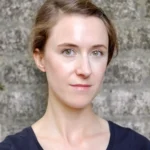 Sarah Eskens, Assistant Professor in Law and Technology Vrije Universiteit Amsterdam, the Netherlands
Sarah Eskens, Assistant Professor in Law and Technology Vrije Universiteit Amsterdam, the Netherlands
Sarah Eskens is an Assistant Professor in Law & Technology at the Vrije Universiteit Amsterdam, where she teaches and researches privacy and data protection law, freedom of expression, and media regulation with a focus on topics such as surveillance, disinformation, and personalization. She coordinates the master’s program in International Technology Law. Before Sarah started at the VU, she was a postdoctoral researcher at the University of Amsterdam (2020). Sarah holds an LLM in Information Law from the University of Amsterdam (2016) and she conducted her doctoral research on the topic of news personalization and the fundamental rights of news users at the same university (2016-2020). Next to her academic work, Sarah is a member of the Meijers Committee, the standing committee of experts in international immigration, refugee, and criminal law based in the Netherlands. For her studies and research, Sarah has lived in Amsterdam, New York, San Francisco, and Cambridge (UK). She has published in several international journals on topics ranging from mass surveillance, recommender systems, and artificial intelligence in the news media.
Her research lies in the field of civil liberties and human rights, with particular focus on counter-terrorism law and policy, media freedom of expression (including contempt law, obscenity law, and privacy law), public protest, and the influence of the European Convention on Human Rights under the Human Rights Act. Her publications, including two single-authored books, concentrate on these areas. Her current research explores counter-terrorist measures, media freedom of expression, and judicial reasoning under the Human Rights Act.
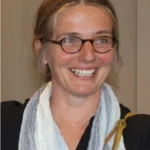 Uta Kohl, Visiting Professor in Law and Technology, CUHK (2023-25), Professor of Law, Southampton Law School, UK
Uta Kohl, Visiting Professor in Law and Technology, CUHK (2023-25), Professor of Law, Southampton Law School, UKUta is Professor of Law and Technology at Southampton Law School. Her research interests have been broad ranging, mostly concerning governance questions of the internet – its territoriality, dominant corporate actors, personal data building blocks and technologies, such as algorithms and AI. She is interested in the intersections of related legal regimes (e.g. private and public international law; privacy and data protection), comparative law, and critical legal readings of developments in the law-and-technology field.
Uta has been published widely, including the monograph Jurisdiction and the Internet (CUP, 2007, ppb 2010), the edited collections The Net and the Nation State (CUP, 2017) and Data-Driven Personalisation in Markets, Politics and Law (CUP, 2021, co-editor J. Eisler) and the textbook Information Technology Law (5th ed, 2016, co-authors Diane Rowland and Andrew Charlesworth).
September 2023 – August 2025: Visiting Professor in Law and Technology at CUHK, Hong Kong.
 András Koltay, Research Professor at the University of Public Service and Professor of Law at Pázmány Péter Catholic University, Budapest, Hungary
András Koltay, Research Professor at the University of Public Service and Professor of Law at Pázmány Péter Catholic University, Budapest, Hungary
András Koltay is Research Professor at the University of Public Service and Professor of Law at Pázmány Péter Catholic University in Budapest, Hungary. He received LL.M. degree in Public Law at the University College London in 2006, and PhD degree in law at the Pázmány Péter Catholic University in 2008. Between 2018 and 2021, he served as Rector of the University of Public Service. He has been the President of the National Media and Infocommunications Authority of Hungary since 2021. His principal research has been concerned with freedom of speech, personality rights and media regulations, but he also deals with other constitutional questions. He was a speaker in more than 200 conferences in several countries. He is the author of New Media and Freedom of Expression (Hart, 2019) and Media Freedom and the Law (Routledge, 2024). He is the co-editor of Blasphemy and Freedom of Expression (Cambridge University Press, 2017, together with Jeroen Temperman), Comparative Privacy and Defamation (Elgar, 2020, together with Paul Wragg), Global Perspectives on Press Regulation, Vol. 1 and 2 (Hart, 2023 and 2024, together with Paul Wragg) and Disinformation, Misinformation, and Democracy (Cambridge University Press, 2024, together with Ronald J. Krotoszynski, Jr. and Charlotte Garden).
 Joanna Kulesza, Assistant Professor of International Law, and Director of the Lodz Cyber Hub at the University of Lodz, Poland
Joanna Kulesza, Assistant Professor of International Law, and Director of the Lodz Cyber Hub at the University of Lodz, Poland
Joanna Kulesza is an Assistant Professor of International Law and Director of the Lodz Cyber Hub at the University of Lodz, where she leads research on the application of international law in cyberspace. She is also a liaison to the Governmental Advisory Committee of ICANN and a former Vice-Chair of the At-Large Advisory Committee (ALAC).
Joanna served on the Scientific Committee of the European Union Agency for Fundamental Rights (2018-2023) and is a faculty member at Vilnius University and Oslo University. She held postdoctoral positions at the University of Cambridge and Ludwig Maximilian University of Munich. Delivered guest lectures at prestigeous academic institutions including Stanford University, the University of Oxford, Hebrew University in Jerusalem, and the University of Münster.
Participant in the “Oxford Process on International Law Protections in Cyberspace” and co-author of its declarations. Additionally, Joanna contributed to the United Nations (UN) Commission on developing an international convention to counter the misuse of information and communication technologies for criminal purposes (2021-2024).
Reviewer for esteemed peer reviewed journals including Telecommunications Policy, Data & Policy (CUP), International Data Privacy Law (Oxford Academic), European Journal of Law and Technology (University of Exeter), Law, Innovation and Technology (T&F), and Internet Policy Review (Humboldt University of Berlin). An expert in human rights, technology, and international law, Kulesza has authored numerous publications and actively engages in global policy initiatives on digital governance and cybersecurity.
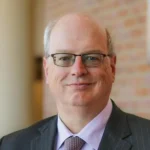 Ronald Krotoszynski, John S. Stone Chairholder of Law and Director of the Program in Constitutional Studies & Initiative for Civic Engagement
Ronald Krotoszynski, John S. Stone Chairholder of Law and Director of the Program in Constitutional Studies & Initiative for Civic Engagement
Professor Krotoszynski earned his B.A. and M.A. from Emory University and J.D. and LL.M. from Duke University where he was articles editor for the Duke Law Journal and selected for Order of the Coif. He clerked for the Honorable Frank M. Johnson, Jr, of the United States Court of Appeals for the Eleventh Circuit and was an associate with Covington & Burling, D.C. Prior to joining the faculty at the University of Alabama School of Law, Professor Krotoszynski served on the law faculty at Washington and Lee University and, prior to that, on the law faculty of the Indiana University School of Law-Indianapolis. He also has taught as a visiting professor at the Washington and Lee University School of Law, the Marshall-Wythe School of Law at the College of William and Mary, at the Florida State University College of Law, and at Brooklyn Law School. Krotoszynski has held appointments as a visiting scholar in residence at the University of Washington-Seattle School of Law, the Seattle University School of Law, and the Lewis and Clark School of Law.
 Emily Laidlaw, Research Chair in cybersecurity law and Associate Professor in the Faculty of Law at the
Emily Laidlaw, Research Chair in cybersecurity law and Associate Professor in the Faculty of Law at the
University of Calgary, Canada
Emily Laidlaw is a Canada Research Chair in Cybersecurity Law and Associate Professor. She researches in the areas of technology regulation, cybersecurity and human rights, with a focus on platform regulation, online harms, privacy, freedom of expression and corporate social responsibility. She is author of the book Regulating Speech in Cyberspace: Gatekeepers, Human Rights and Corporate Responsibility (Cambridge University Press, 2015).
Prior to joining the University of Calgary in 2014, Dr. Laidlaw spent almost ten years in the United Kingdom where she completed her LLM and PhD at the London School of Economics and Political Science and held a tenure-track lectureship with the University of East Anglia Law School. Before undertaking postgraduate studies, Emily practised for several years in Canada as a litigator, and she is currently serving as Ethics Advisor to Calgary’s City Council.
Drawing from her years in the UK, Dr. Laidlaw’s research spans Canadian, UK, European and international law. As a scholar, she actively contributes to law reform and other advisory work to government and other bodies, with recent projects on online harms, mis- and dis-information, defamation law, intimate image abuse, intermediary liability, content moderation and privacy. She co-chaired the expert advisory panel on online safety appointed by the Government of Canada to advise on next steps for the development of legislation to address online harms. As a result of the impact of her work outside the academy, Dr. Laidlaw was recognized as a Peak Scholar in 2018.
Dr. Laidlaw engages widely in public discussions in her field, delighting in conversations with her students, with the public at events, whether at the library or online panels, conferences, judicial education and testimony before government.
Dr. Laidlaw is a network director of the Canadian Network on Information and Security and a member of the Institute for Security, Privacy and Information Assurance.
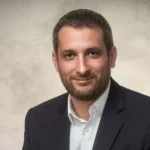 Bernát Török, Associate Professor of Constitutional Law, director of the Institute of the Information Society at the Ludovika University of Public Service, Budapest, Hungary, and UNESCO Chair on Digital Platforms for Learning Societies.
Bernát Török, Associate Professor of Constitutional Law, director of the Institute of the Information Society at the Ludovika University of Public Service, Budapest, Hungary, and UNESCO Chair on Digital Platforms for Learning Societies.
Bernát Török is Associate Professor of Constitutional Law, Director of the Institute of the Information Society at the Ludovika University of Public Service (Budapest), and UNESCO Chair on Digital Platforms for Learning Societies. He worked as legal expert at the Hungarian media authority for seven years, then he was chief counsellor at the Constitutional Court of Hungary between 2010 and 2018. In 2016–17, he was visiting scholar at Yale Law School. He earned his PhD in 2018 with a thesis titled To Speak Freely in a Democracy. His research interests include freedom of speech, and fundamental rights in the information society.
Conference Room 728
Jerome L. Greene Hall
Columbia Law School
435 W 116th St, New York, NY 10027
Entrance:
Please enter through the main entrance of Jerome L. Greene Hall.
Directions from Subway:
-
If you take the subway to 116th Street, note that access to the main campus is restricted, so you cannot cut through campus.
-
From the subway stop, walk along 114th Street (or 120th Street) to Amsterdam Avenue, then walk up to the main entrance on 116th Street.
Map:

